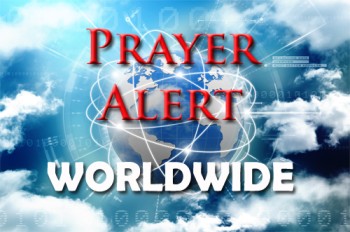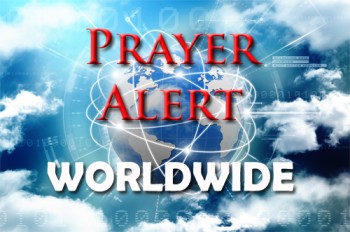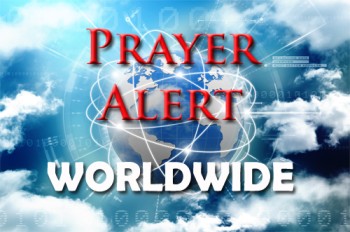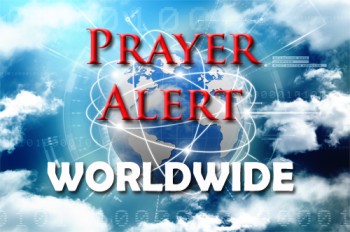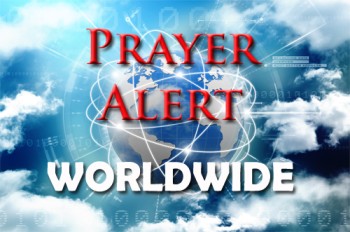Displaying items by tag: violence
Mali: forty killed in violent attack
Around forty people were killed by unidentified armed men in a village in central Mali on 1 July. The attack, which occurred during a wedding, caused panic and forced many to flee. Survivors reported the attackers surrounded the village and opened fire. No group has claimed responsibility, but groups linked with al-Qaeda and IS have been active since 2015. They have seized territory, making parts of the country ungovernable. Despite promises to tackle insecurity, Mali’s military government, which took power in a 2020 coup, has struggled to control the violence. It has also been accused of human rights abuses. The UN peacekeeping mission in Mali ended its deployment last December, in a pullout ordered by the government.
Kenya: president backs down after protesters killed or injured
Following violent protests in which 22 people were killed, president William Ruto has announced he will not sign a finance bill proposing new taxes. The bill, which aimed to raise funds to pay off debt, has faced widespread opposition from Kenyans struggling economically. On 25 June thousands of protesters stormed parliament, an action which Ruto called ‘treasonous’. In the chaos which ensued, the police and military were accused of brutality, with human rights groups reporting abductions and hundreds of injuries. Acknowledging the ‘widespread dissatisfaction’, Ruto admitted the need for a national conversation on managing the country's affairs together. The high court has suspended the military deployment and ordered the release of all protestors. Many young voters who supported Ruto in 2022 now oppose his reforms, feeling betrayed by the economic hardships. He has been criticised for not adopting a more conciliatory approach, and widespread protests continue: see
Mexico: first female president faces daunting task
Claudia Sheinbaum, former mayor of Mexico City, has been elected as Mexico's first female president, with 58% of the vote. This strengthens the Morena party's control, following outgoing president Andres Manuel Lopez Obrador (AMLO). Despite concerns about Sheinbaum’s close ties to AMLO, both have insisted he will not influence her administration. She has committed to addressing Mexico's issues, particularly violence and security; the country is plagued by over 30,000 murders a year. During her tenure as mayor, the homicide rate in the capital dropped by 50%, credited to improved security measures. She plans to continue AMLO's strategy of non-confrontation with crime groups, relying on the national guard for security. Analysts expect Sheinbaum's presidency to be more disciplined and globally aware than AMLO's. However, the challenges she faces were highlighted when a female mayor was shot dead on 4 June.
Comoros: violence follows disputed election result
The announcement on 17 January that Azali Assoumani had been re-elected president of the Comoros resulted in numerous protests and clashes. Demonstrators in the capital, Moroni, vandalised a former minister's house and blocked roads during the day, leading to confrontations with police who used tear gas and made arrests. In the evening, the government imposed a night curfew, citing ‘public necessity’. Officials announced that Assoumani had won 62.97% of the vote, but opposition leaders alleged fraud, including ballot-stuffing and inconsistent results, and jointly demanded the annulment of the result. The UN called for restraint amid mounting post-election tensions and urged the authorities to ensure a safe environment for peaceful assembly and expression of views. The Comoros, a politically volatile three-island chain with a history of coups, experienced a surprisingly low voter turnout of 16%, and discrepancies in vote counts raised concerns about the election's regularity.
Papua New Guinea: violence after police go on strike
Violence erupted in PNG's capital, Port Moresby, on 10 January, after police went on strike due to pay issues. The governor, as looting and fires engulfed the city, called the situation unprecedented in the country's history. The police commissioner mentioned plans to deploy additional officers from regional areas and relocate defence forces to support the city’s overwhelmed police presence. Firefighters faced threats while trying to control the blazes, and the parliament's guard house was reportedly set on fire by protesters. The police strike began when officers discovered reductions in their pay. The government has promised to rectify any administrative errors causing these pay discrepancies. PNG has been grappling with rising violent crime rates in recent years. The prime minister has said that increasing security would help to attract foreign investment in PNG’s growing gold and copper resources sector.
Sierra Leone: weekend coup attempt foiled
The information minister has declared that attacks on several locations in the capital, Freetown, were in fact a failed coup attempt led mainly by bodyguards of the previous president, Ernest Koroma. On 26 November they attacked a military barracks and a prison, freeing over 200 prisoners, but by the next day calm had been restored by the security forces, with most of the attackers killed or captured. President Bio remains unharmed. Sierra Leone, which is still recovering from a 1991-2002 civil war in which more than 50,000 were killed, has been tense since Bio was re-elected in June. The result was rejected by the main opposition candidate and questioned by international partners including the USA and the EU.
Ecuador: new president sworn in
In October we prayed for the presidential election in Ecuador. Now millionaire Daniel Noboa has been sworn in as president, marking a significant shift in the country's political landscape. A businessman with no prior political experience, he surprisingly won the snap election which former president Guillermo Lasso called to avoid possible impeachment. He will serve only 18 months, the remainder of Lasso’s term. Once considered one of the safest countries in the region, Ecuador has seen violence explode in recent years; there was an unprecedented increase in bloodshed, and drug violence has led to some 3,600 murders so far this year. Noboa has said he will target the violence by tackling unemployment, but also implement a state of emergency, suspend some citizen rights such as freedom of movement, and deploy the military to the streets. There is a considerable sense of uncertainty and anticipation surrounding his presidency.
Cameroon: 20+ killed by English-speaking separatists
On 6 November more than twenty people, including women and children, were killed in an attack by English-speaking separatists in western Cameroon. Since the end of 2016, this area (populated mainly by the English-speaking minority) has seen a deadly conflict between pro-independence armed groups and the security forces. Each side has been accused of crimes against civilians by international NGOs and the UN. The government said that the ‘terrorists’ attacked using firearms and traditional weapons, and burnt down around ten houses. A resident thought the attack was probably made on that day because it was the anniversary of Paul Biya's accession to power as president; he added that a meeting of the RDPC (the all-powerful presidential party) had been scheduled to take place nearby. Cameroon, which has a population of nearly 30 million, has been ruled with an iron fist for 41 years by Biya.
Russia: many more soldiers accused of murder
Independent news outlet Vyorstka has reported a huge uptick in the number of Russian soldiers facing trial for murders committed outside the conflict zone in Ukraine. At least 147 soldiers went on trial for murder between January and September, compared to the 15 murder cases heard against soldiers in military courts in all of 2022. Court verdicts from this year indicate that most soldiers facing trial committed murders under the influence of alcohol. In one case an intoxicated soldier killed a woman with a Kalashnikov assault rifle after learning that she did not support Moscow's invasion of Ukraine. He was sentenced to nine years in prison in March. It is unclear whether the figures cited by Vyorstka include members of the Wagner mercenary outfit, which recruited prison inmates to fight in Ukraine in exchange for pardons. Among the weapons used in the murders were knives, axes, pistols, and Kalashnikovs.
Gaza-Israel tensions spiral
After twelve days of closure, the border crossing from the Gaza Strip into Israel was reopened at dawn on 28 September, causing thousands of Gazans to sleep overnight as they awaited the chance to resume the work for which they are authorised. It was the news which Amjad Hassan, a builder who is the sole breadwinner for 13 relatives had been praying for. ‘We work on a daily wage; if we don't work, we don't feed our families’, he explained. The border closure followed renewed demonstrations as young Palestinians have confronted Israeli soldiers, with the approval or even encouragement of Hamas, which controls the enclave. Protesters have burnt tyres, thrown stones and explosive devices, and released incendiary balloons and kites into southern Israel, There is a perception that Hamas is trying to distract attention from its own economic woes and also to gain leverage in indirect talks with Israel, being led by Egypt, Qatar, and the UN.
